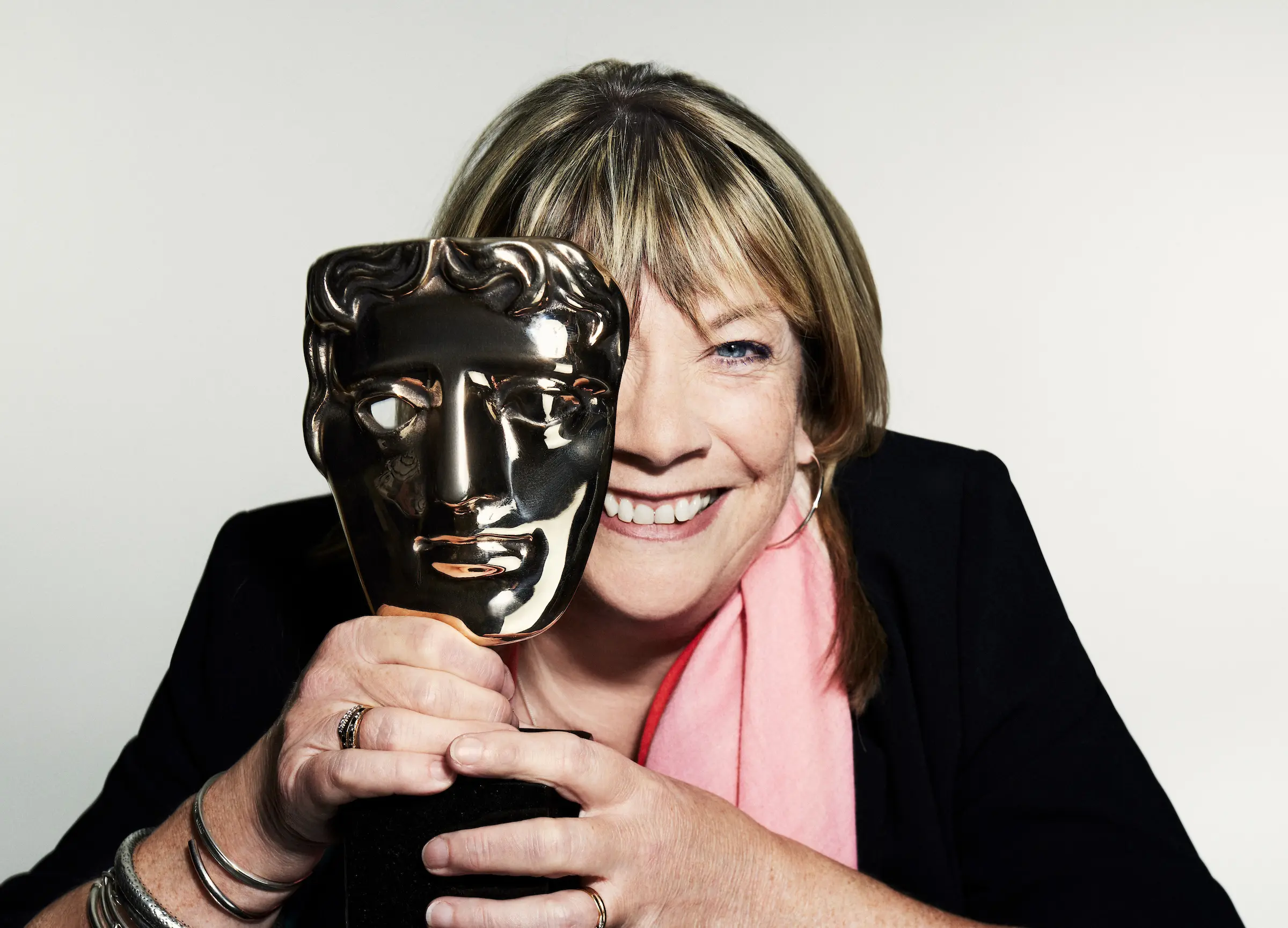This award doesn’t just honour Alison Barnett’s own pioneering career, it also champions an area of television and film that’s often left in the shadows.
“We’re out of sight, out of mind,” she says, “but without us everything would fall apart. I’m so thrilled that BAFTA has recognised the production office, and the people who work in it. It will help enormously because it’s difficult to recruit young people in production and keep hold of them. The production office can be miles away from set, working independently and long hours… To work in the production office, you really have to love TV. Luckily, we do.”
Her own passion for the artform emerged through an enviable roster of shows: Doctor Who (1979), Blake’s Seven (1980), Grange Hill (1980-1981), All Creatures Great and Small (1983, incidentally where she met her husband), Lipstick on Your Collar (1993), The Lakes (1999), Spooks (2003-2011), Bleak House (2005), Life on Mars (2006-2007) and Hustle (2005-2011), to name a few. More recent Kudos hits have included Utopia (2013-2014), Grantchester (2014-2017), Broadchurch (2013-2017), SAS: Rogue Heroes (2022), The Rig (2023) and more.
She’s remained passionate about the business because of a fundamental source of regular joy. “A script landing on your desk is so exciting,” she explains. “You go, ‘How are we going to make it?’ I still get a great kick out of that. With SAS, it was, ‘Right, where are we going to shoot the desert? Morocco?’ Then Covid struck. We got special permission from the King to charter a plane to Morocco when the country was in lockdown.”
She continues: “In 2021-2022, at Kudos, we were making SAS; Then You Run in Germany; Grantchester; and Code 404; and The Sixth Commandment and The Rig for Wild Mercury. It’s only afterwards that you think, ‘How the hell did we pull that off?’ You have to have a brilliant production office crew to back you up.”
She notes that budgets remain tight, so a good team of people, who can think outside the box to problem solve, are not just important but a necessity. “At the beginning of Spooks, we had a decent budget, but the ambition was huge. We often had to say, ‘We can’t afford to do this, so let’s all sit down and brainstorm how we can achieve these fabulous scripts.’ We try to do that on all of our shows. I’m all for getting everybody in a room – writer, producer, director, heads of department – and coming up with an answer, which we always do. I still find that exciting.”
Her enthusiasm may have remained constant, but the nature of the industry and the work itself has changed dramatically across her career. “The day-to-day paperwork itself is huge now,” she states. “Apart from the daily call sheet, there are crew contracts, location contracts, health and safety, risk assessments, policies covering such aspects as mental health and wellbeing. The list goes on, all administered by the production office.”









